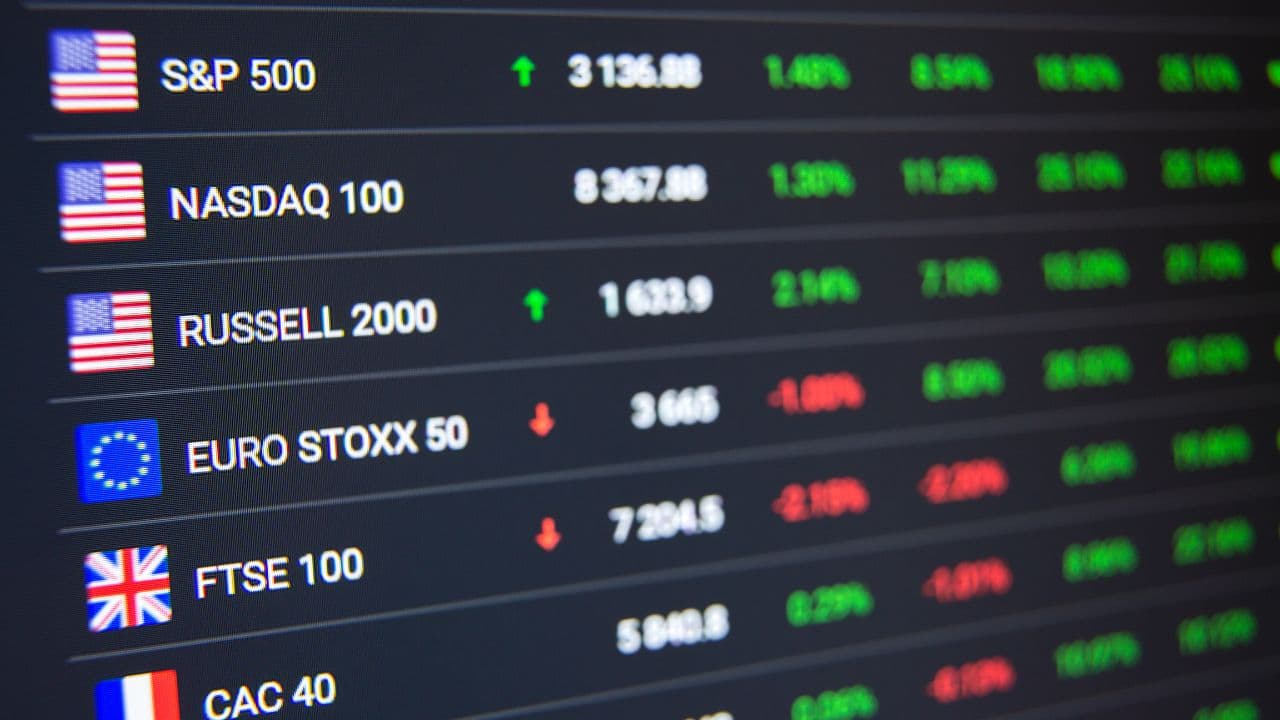INDICES
Trade Indices
Index trading entails engaging in transactions involving a collection of stocks that symbolise a specific market or sector.

An index serves as a standard to measure the collective performance of a set of stocks, examples being the S&P 500, Dow Jones Industrial Average, or NASDAQ Composite. The most sought-after indices for trading include major stock market indices like the S&P 500, Dow Jones, and NASDAQ in the USA, the FTSE 100 in the UK, the Nikkei 225 in Japan, and the DAX in Germany.
A diverse range of indices is available for selection, encompassing stock market indices, sector-specific indices, and global indices. It's important to align your choice of index with your investment objectives and risk tolerance. There are various trading strategies to consider, such as day trading, swing trading, or long-term investing. Your choice of strategy should reflect your investment goals and risk appetite.
To gauge an index's performance and potential risks, employing technical and fundamental analysis is crucial. This involves examining historical data, market trends, and news impacting the index. After selecting an index and a trading strategy, you can initiate your trade. Continuously monitor your trade and adjust your strategy as necessary. Implementing stop-loss orders can help mitigate potential losses, while take-profit orders can secure gains.
Be mindful that trading indices carries inherent risks, and it's advisable to invest only what you can afford to lose. Staying informed about market news and trends is vital for making educated trading decisions.
For personalised guidance tailored to your specific needs and goals, our team of financial advisors is available to provide expert advice.
What are indices?
An index in stocks is an aggregate of publicly traded companies in a specific region, or on a specific exchange. These stock indices that are tied to specific nations can have a defining impact on each nation’s economy and is typically an indicator of the nation’s overall economic health.
These indices also provide an opportunity for traders to profit from the natural price fluctuations across the market. Different factors can affect the value of stock indices, including the strength of each nation’s economy, the strength of its currency, its political leadership, and the performance of the companies listed in each index.
Stock indices allow investors to gain exposure to large markets all at once, rather than making investments only in individual stocks. Trojan Markets offers exposure to the world’s most popular indices via contracts for differences.
Why trade indices with Trojan Markets?
Exciting opportunities.
Be a part of some of the largest and most-popular markets with Trojan Markets. Start trading in S&P 500, NASDAQ, NIKKEI, HANG SENG, ASX 200, and many more, in minutes!
Best-in-class trading tools.
Become a better trader with advanced tools, multiple order types, and customisable platform interface. markethouse provides an award-winning trading software that is used by traders from around the world.
Low trading fees.
Save on fees while trading with Trojan Markets, which offers some of the lowest commission rates in the industry.
